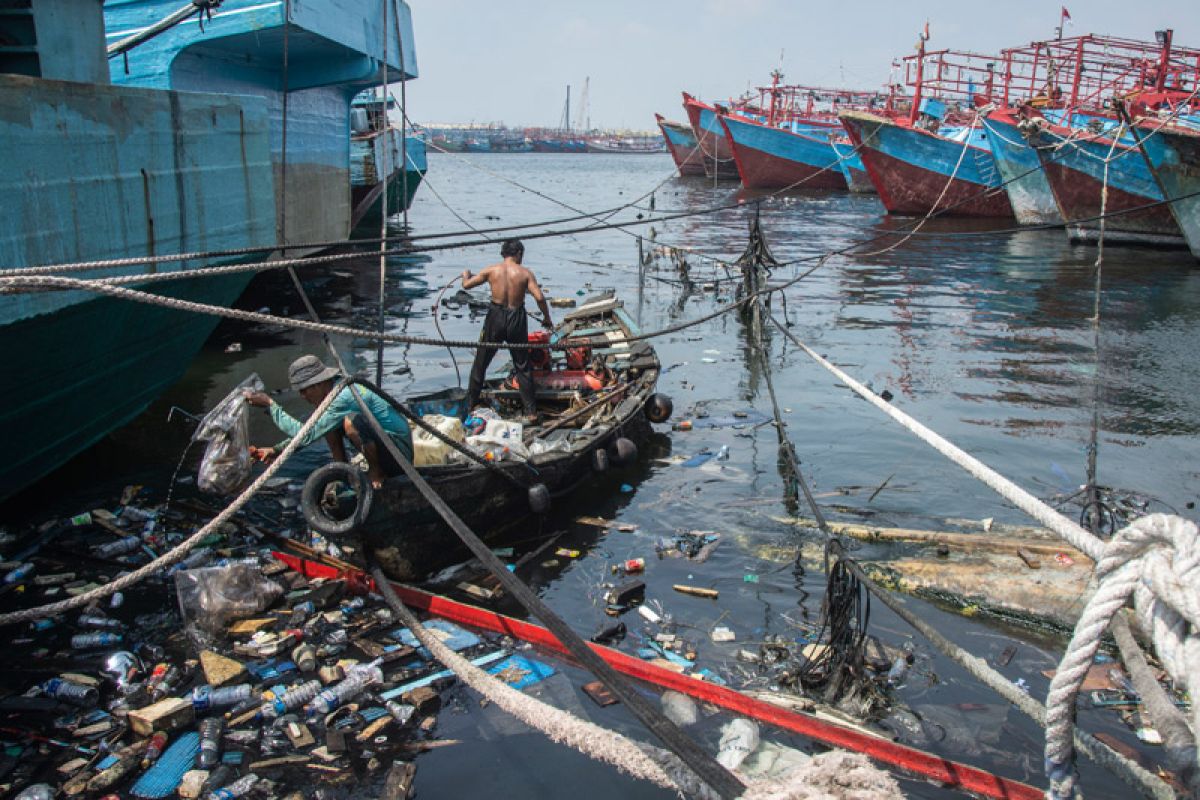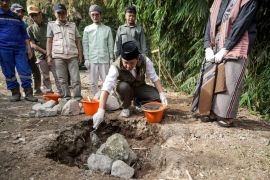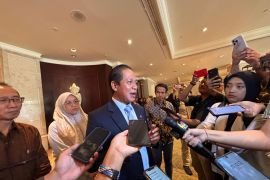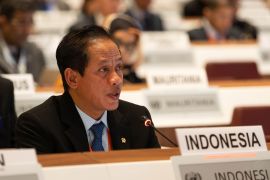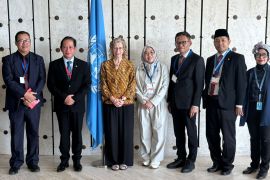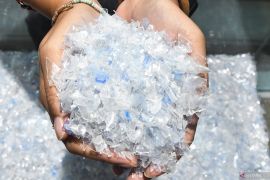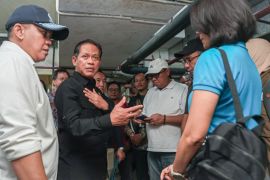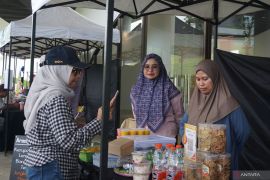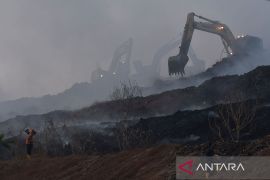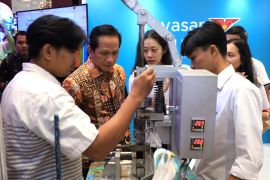"One of the government`s commitments to reducing waste, especially plastic, up to 70 percent by 2025, is by issuing a presidential regulation on the handling of sea waste," Hendiarti remarked in Nusa Dua, Bali, on Thursday (Oct 11).
In dealing with the problem of sea waste, synergy has been established between 16 ministries at the central government and local administrations that serve as the spearheads in overcoming sea waste, Hendiarti noted in a special interview with Antara on the sidelines of the Annual Meetings of the International Monetary Fund-World Bank Group 2018 in Nusa Dua, Bali.
The other stakeholders are also the people, including our partners from non-governmental organizations, academicians, communities, and industries both at home and abroad, who are working together in an integrated manner, she remarked.
"We have several important strategies, including changing the people`s behavior (being aware of the environment), and this change is a direct role of the people in helping the government to overcome the problem of waste, especially sea waste," she added.
Meanwhile, Mandhara Brasika, a young businessman, who produces bamboo straws, recommends the production of straws made of bamboo instead of plastics, as bamboo is sourced from nature and can be reused.
"In Bali, the new governor will issue rules on banning the disposal of plastic waste, especially plastic straws, and with this regulation, young people should also take part in tackling plastic waste," Brasika noted.
Apart from being a substitute for plastic materials, bamboo is also beneficial for conservation interests, Brasika remarked, adding that the species used is bamboo reed, which is widely found in Java, but still grows wild and yet to be grown commercially.
"So far, people are not interested in planting bamboo, as they only look from the environment aspect, without other incentives. However, when we can offer added economic value, people are expected to plant more bamboo, among others, to make straws from it, so this is one of the commitments to protecting the environment," he stated.
"Once they know that bamboo has added economic value, more people will begin growing bamboo than protecting the environment and can also help the government overcome the plastic problem," he added.
According to Brasika, bamboo straws can be used by various parties, including entrepreneurs, especially those engaged in the food and beverage sector, such as restaurants and hotels, where they can showcase their role in taking care of the environment.
Another view was echoed by Benita Caroline, a businessperson, who produces plastic bags made of cassava.
Caroline noted that of all products in demand among people are bags that are used to carry shopping items, among other things.
"The bags that we produced are made from cassava, with a plastic-like texture, in various shapes and colors, so that the user is not bored," Caroline noted.
This bag is made from cassava, which easily decomposes, so it does not cause environmental problems.
"The plastic bags that we use now will decompose in hundreds of years," Caroline stated.
With the growing need for such bags, production can empower cassava farmers in the hopes of getting support from the government.
"The government`s support can, among other things, be in the form of regulations on banning the disposal of plastic waste, so that Indonesia will no longer be viewed as the second-largest producer of plastic waste in the world," Caroline noted.
Reporter: Bambang Purwanto
Editor: Fardah Assegaf
Copyright © ANTARA 2018
